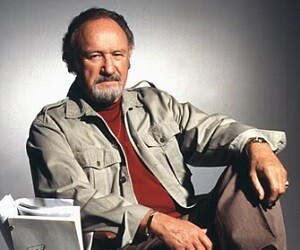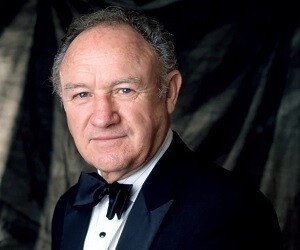

Last Updated: 27 Feb, 2025 | Views: 10679
Age: 95
Profession: Actor
Famous For: His role as Agent Jimmy "Popeye" Doyle in movie ‘The French Connection’
About (Profile/Biography):
Gene Hackman is an acclaimed American actor known for his versatility and powerful performances across five decades in Hollywood. Born in 1930, Hackman rose from humble beginnings to become one of cinema's most respected performers. After retiring from acting in 2004, he reinvented himself as a novelist. His authentic portrayals of complex characters earned him two Academy Awards and a permanent place in film history.
Early Life of Gene Hackman
• Born Eugene Allen Hackman on January 30, 1930, in San Bernardino, California, young Gene endured his father's abandonment at age 13 when he left the family with only a wave goodbye—an emotional wound that would later fuel his acting intensity.
• The future star joined the United States Marine Corps at just 16 years old after lying about his age, serving four and a half years primarily as a radio operator before pursuing his dream of becoming an actor against significant odds.
• Before finding success, Hackman studied journalism and television production at the University of Illinois under the G.I. Bill, working odd jobs including doorman, furniture mover, and soda jerk to support himself during his early struggling actor days.
Gene Hackman’s Rise to Fame
• Hackman's breakthrough came with his Oscar-nominated role as Buck Barrow in the 1967 film "Bonnie and Clyde," following years of rejection including being voted "least likely to succeed" by instructors at the Pasadena Playhouse where he studied alongside future friend Dustin Hoffman.
• The actor cemented his stardom with his portrayal of Detective Jimmy "Popeye" Doyle in 1971's "The French Connection," a performance so convincing that actual New York City police officers would often greet him as if he were a real cop.
• Despite his late start in Hollywood (making his film debut at age 34), Gene quickly established himself as one of the industry's most reliable character actors, known for his ability to disappear completely into roles.
Career Highlights of Gene Hackman
• Hackman's unforgettable performance as the sadistic Sheriff "Little Bill" Daggett in Clint Eastwood's 1992 western "Unforgiven" earned him his second Academy Award and showcased his remarkable ability to portray complex villains with psychological depth.
• The versatile performer displayed his rarely-seen comedic talents in "The Royal Tenenbaums" (2001), playing the estranged patriarch Royal Tenenbaum—a role specifically written for him by director Wes Anderson who considered no other actors for the part.
• His portrayal of blind vigilante Harry Caul in Francis Ford Coppola's "The Conversation" (1974) is considered by many critics to be his finest performance, demonstrating his extraordinary range in a film overshadowed by the release of "The Godfather Part II" that same year.
Awards and Recognition received by Gene Hackman
• Gene won the Academy Award for Best Actor for "The French Connection" (1971) and Best Supporting Actor for "Unforgiven" (1992), establishing himself as one of the few performers capable of excellence in both leading and supporting categories.
• The versatile performer received three additional Oscar nominations for "Bonnie and Clyde" (1967), "I Never Sang for My Father" (1970), and "Mississippi Burning" (1988), demonstrating his consistent excellence across different roles and genres.
• Beyond his Oscar success, Hackman collected four Golden Globe awards, two BAFTAs, and a Screen Actors Guild Lifetime Achievement Award in 2003, cementing his legacy as one of American cinema's most decorated and respected actors.
Lesser-Known Facts about Gene Hackman
• Before becoming an actor, Hackman served as a field radio operator in the Marines and was stationed in China shortly after World War II, an experience that taught him discipline he later credited for his acting success.
• The acclaimed performer has a surprising fear of heights that made filming certain scenes extremely difficult, particularly during "The French Connection" when he had to perform chase sequences on elevated subway platforms.
• After retiring from acting, Gene became a successful novelist, co-writing four historical fiction novels and three solo works, including the critically-praised sea adventure "Payback at Morning Peak," pursuing his lifelong interest in naval history.
Controversy around Gene Hackman
• In 2001, Hackman was involved in a traffic altercation in Hollywood where he allegedly slapped a homeless man who had threatened him, resulting in no charges being filed but generating significant media attention that the private actor found deeply uncomfortable.
• The notoriously temperamental star reportedly clashed frequently with director Wes Anderson on "The Royal Tenenbaums" set, with tensions reaching such heights that they communicated through intermediaries for portions of the production.
• Hackman's abrupt retirement announcement shocked Hollywood insiders, later revealing in rare interviews that he left due to stress-related health concerns and having "hit a wall" creatively, refusing numerous comeback offers including from Steven Spielberg.
Wait!
Here're some popular profiles for you.


